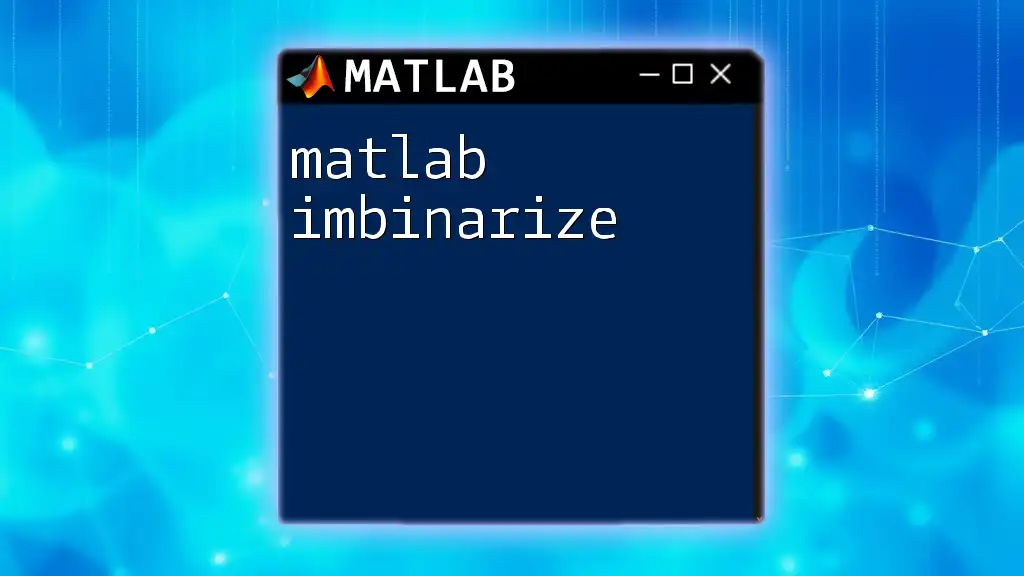In MATLAB, the symbolic derivative allows you to compute the derivative of a symbolic expression or function with respect to a specified variable, making it easy to analyze mathematical relationships.
syms x; % Declare the symbolic variable
f = x^2 + 3*x + 2; % Define the symbolic function
df = diff(f, x); % Compute the derivative of the function with respect to x
disp(df); % Display the derivative
Understanding Symbolic Math in MATLAB
What is Symbolic Math?
Symbolic math refers to the computation and manipulation of mathematical expressions in a symbolic form rather than a numeric one. It allows users to perform algebraic operations, calculus, and other mathematical tasks with exact expressions, facilitating a deeper understanding of mathematical concepts and relationships. MATLAB's capabilities in symbolic math make it a powerful tool for engineers and researchers who require precision in their calculations.
Why Use Symbolic Derivatives?
The use of symbolic derivatives offers several advantages over numerical approaches:
- Exact Calculations: Symbolic derivatives yield precise values, which can be crucial for theoretical work and applications requiring a deep understanding of function behaviors.
- Simplification: Symbolic mathematics allows users to simplify expressions algebraically, revealing insights about functions that numerical approaches may obscure.
- Analysis Tools: With symbolic derivatives, users can easily analyze functions for critical points, concavity, and inflection points, which are essential in optimization and modeling scenarios.
Setting Up the Symbolic Math Toolbox
Before diving into symbolic derivatives, it’s essential to ensure that the Symbolic Math Toolbox is installed in your MATLAB environment.
To check if the toolbox is available, run the following command in MATLAB:
ver
This command lists all installed toolboxes. Ensure that "Symbolic Math Toolbox" appears in the list. If it is not installed, you can add it through the Add-Ons menu.

Getting Started with Symbolic Derivatives
Creating Symbolic Variables
In MATLAB, to perform symbolic mathematics, you first need to create symbolic variables. This is accomplished using the `syms` command, which declares a symbolic variable that can be used in further calculations.
To create a symbolic variable, use:
syms x
Here, `x` is declared as a symbolic variable. You can declare multiple variables simultaneously by separating them with spaces:
syms x y z
Defining Symbolic Functions
Once you have your symbolic variables, the next step is to define symbolic functions. These functions can be expressed in terms of the symbolic variables you have created. For example, to define a simple quadratic function:
f = x^2 + 2*x + 1;
This establishes a function `f` that you can manipulate and differentiate later.
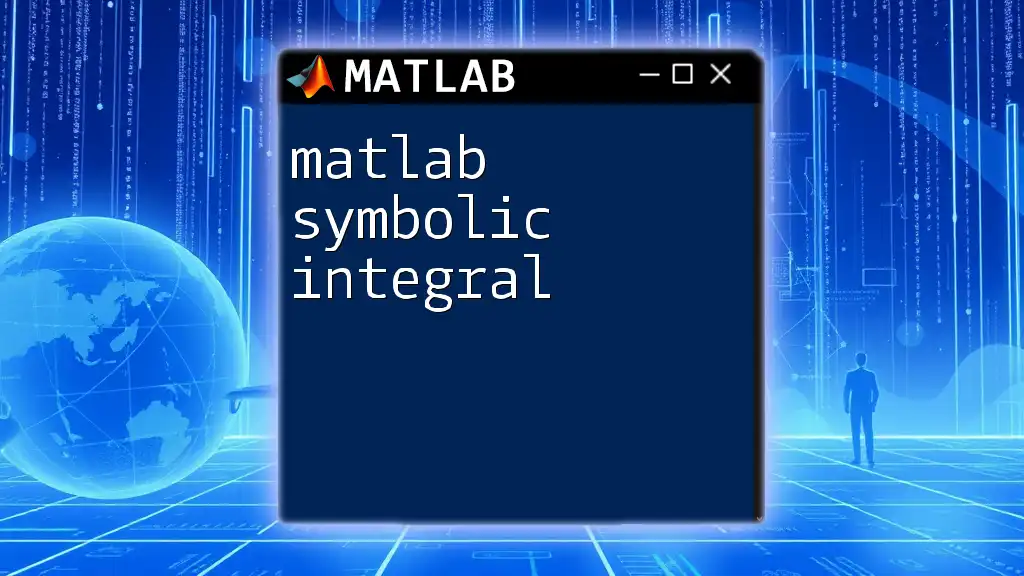
Calculating Symbolic Derivatives
Basic Derivative Command
To compute the derivative of a symbolic function, MATLAB uses the `diff` function. The syntax is straightforward: `diff(function, variable)`.
For instance, to find the derivative of the function defined above, you would use:
df = diff(f, x);
The result, `df`, will be the first derivative of the function `f`, represented symbolically as `2*x + 2`.
Higher-Order Derivatives
In addition to the first derivative, you can compute higher-order derivatives simply by specifying the differentiation order as an additional argument. For example, to compute the second derivative:
d2f = diff(f, x, 2);
This command provides you with the second derivative, which for the function \( f(x) = x^2 + 2x + 1 \) will yield `2`.
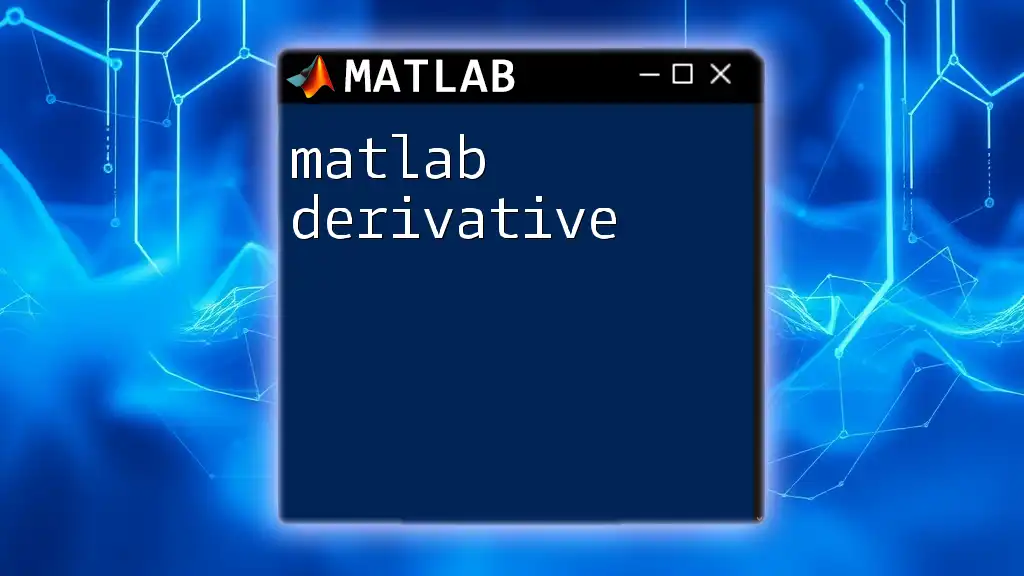
Applications of Symbolic Derivatives
Analyzing Functions
Symbolic derivatives are invaluable for function analysis. They help determine critical points, where the first derivative equals zero. This is essential for finding local maxima and minima.
To find critical points of the function \( f(x) \), you can solve the derivative equation:
critical_points = solve(diff(f, x) == 0, x);
This will yield the values of `x` at which the function has critical points, enabling further analysis of the function’s behavior.
Integrating Symbolic Derivatives
Symbolic derivatives and integrals are inherently linked through calculus. Once you have the derivative, you can integrate it back to obtain the original function (up to a constant of integration). For example:
integral_f = int(df, x);
This command performs the integral of the derivative `df`, recovering the original function (adding back an arbitrary constant).
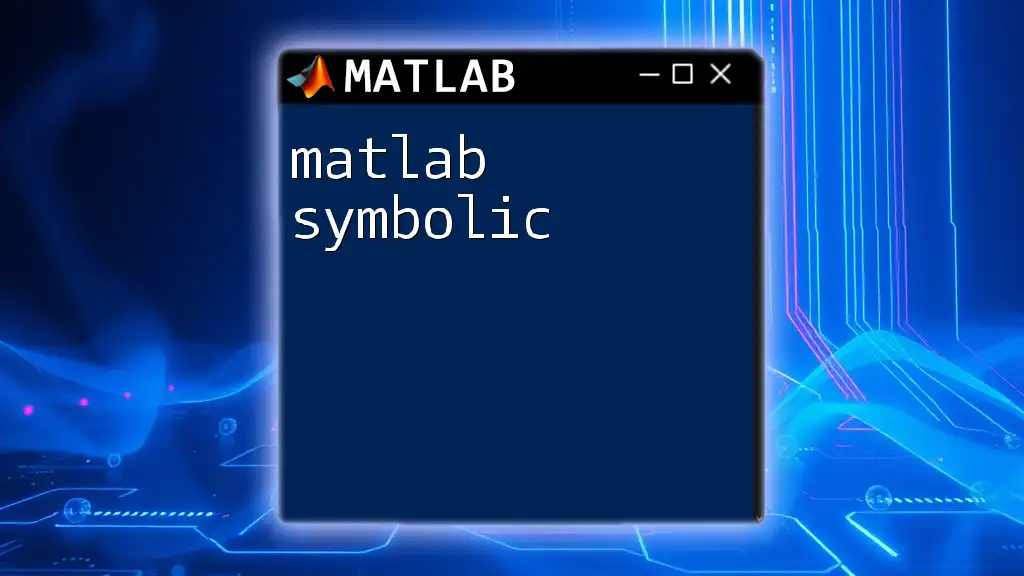
Advanced Features of Symbolic Derivatives
Partial Derivatives
In multivariable calculus, partial derivatives are crucial for analyzing functions with multiple variables. MATLAB allows you to compute partial derivatives using the `diff` function just as you would for single-variable derivatives.
Here is an example of computing a partial derivative of the function \( g(x, y) = x^2 + y^2 \) with respect to `y`:
syms y
g = x^2 + y^2;
partial_derivative = diff(g, y);
This will yield `2*y`, indicating how the function changes with respect to `y` while holding `x` constant.
Implicit Differentiation
Symbolic differentiation also supports implicit differentiation, which is essential when dealing with relations between variables. For example, consider the implicit equation \( x^2 + y^2 = 1 \):
To find the derivative of `y` with respect to `x`, you can differentiate the entire equation:
eq = x^2 + y^2 == 1;
implicit_derivative = diff(eq, x);
This will help you express \(\frac{dy}{dx}\) in terms of `x` and `y`.
Applications in Optimization Problems
In optimization, finding the maxima or minima of a function relies heavily on understanding its derivatives. You can combine the techniques learned so far—defining a function, computing derivatives, and finding critical points—to solve real-world optimization problems, such as minimizing cost or maximizing output in engineering tasks.

Common Errors and Troubleshooting
Identifying Common Mistakes
When working with symbolic derivatives, it's easy to stumble into common pitfalls, such as forgetting the `syms` declaration for variables. A common error occurs when you attempt to differentiate an undeclared variable, which will result in an error.
Tips for Debugging Symbolic Functions
To avoid errors, always ensure that your variables are declared as symbolic before using them in expressions. For example, consider the following mistake, where `y` is not defined as a symbolic variable:
% Error: Not using 'syms' on variable 'y'
incorrect_derivative = diff(y^2, y); % This will throw an error
Make sure to declare all variables properly to ensure smooth operation.
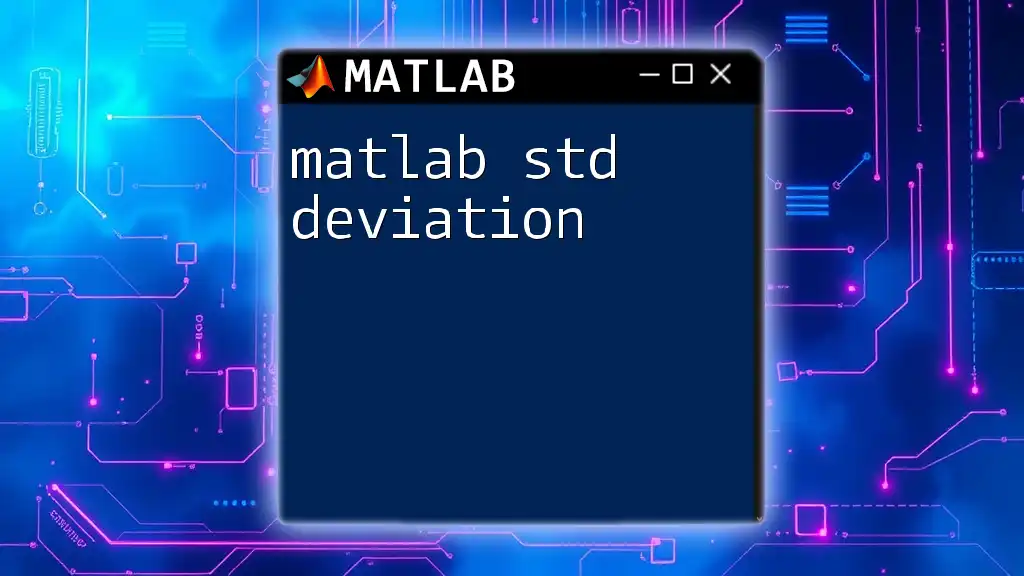
Conclusion
In summary, understanding how to calculate and apply MATLAB symbolic derivatives is essential for anyone working in mathematics, engineering, or related fields. The ability to perform exact symbolic calculations opens doors to deeper analyses and optimizations. Whether you're exploring function behavior or solving complex problems, the Symbolic Math Toolbox provides powerful tools at your fingertips.
For those eager to learn more about leveraging MATLAB for symbolic computations, consider enrolling in our courses for comprehensive training and insights into advanced MATLAB functionalities.











